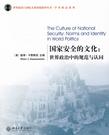国家安全的文化
2009-03
北京大学出版社
【美】彼得·卡赞斯坦 主编
562
无
The revolutionary changes that have marked world politics in recent yearsoffer scholars an extraordinary opportunity for reflection and critical selfappraisal. This is true, in particular, for scholars of international relations.One observer has likened the embarrassment that the end of the Cold Warcaused us as scholars of international relations and national security to theeffects the sinking of the Titanic had on the profession of naval engineers.Although our analytical coordinates for gauging global politics have provento be inadequate for an analysis of a world in rapid change, there has beenremarkably little rethinking of our categories of analysis. Instead, in the firsthalf of the 1990s North American scholarship on the theory of internationalrelations was preoccupied with the issue of whether variants of realism or liberalism offered a superior way for explaining the world. Considering the dramatic international developments occurring during these years, many of theacademic debates looked arcane to the interested bystander. For it is hard todeny that existing theories of international relations have woefully fallenshort in explaining an important revolution in world politics.
本书为国际关系学经典名著,建构主义国际关系流派代表作之一。在本书中,16位重要学者将社会学与安全研究进行了创新性的融合,从规范、认同的角度出发集中分析了世界政治中的安全议题,对现实主义和自由主义的学术观点进行了评析和发展,成为后来建构主义国际关系学的“里程碑”。
彼得·卡赞斯坦(Peter J.Katzenstein),美国哈佛大学博士(1973年),现任康奈尔大学Walter S.Carpente,Jr国际关系学教授。曾任著名的《国际组织》杂志主编,为国际关系学建构主义流派的重要代表人物之一,与现实主义流派的重要代表斯蒂芬·克拉斯纳和新自由主义流派的重要代表罗伯特·基欧汉并称为“三K”。他著述甚丰,其中包括《文化规范与国家安全:战后日本的警察与军队》、《世界市场中的小国:欧洲的工业政策》、《社团主义与变革:奥地利、瑞士和工业政治》、《网络权力:日本与亚洲》、《被驯服的大国:德国在欧洲》等。
Preface1. Introduction: Alternative Perspectives on National Security Peter J. Katzenstein Why Traditional National Security Issues? Existing Analytical Perspectives Cultural-Institutional Context and Political Identity Why Bother?2. Norms, Identity, and Culture in National Security Ronald L. Jepperson, Alexander Wendt, and Peter J. Katzenstein Analytical Context Theoretical Perspectives Arguments Methodological and Metatheoretic Matters Extension and ConclusionPART I. Norms and National Security 3. Status, Norms, and the Proliferation of Conventional Weapons: An Institutional Theory Approach Dana P. Eyre and Mark C. Suchman Standard Explanations for the Proliferation of Weaponry An Alternative Perspective: Obligatory Action and an Institutional Theory of Weapons Proliferation Hypotheses Research Design, Data, and Methods of Analysis Results 4. Norms and Deterrence: The Nuclear and Chemical Weapons Taboos Richard Price and Nina Tannenwald The Social Construction of Deterrence The Chemical Weapons Taboo The Non-use of Nuclear Weapons Norms, Constructivism, and Explanation 5. Constructing Norms of Humanitarian Intervention Martha Finnemore Using Norms to Understand International Politics Humanitarian Intervention in the Nineteenth Century The Expansion of "Humanity" and Sovereignty Humanitarian Intervention Since 1945 6. Culture and French Military Doctrine Before World WarII Hizabeth Kier Alternative Explanations The Cultural Roots of Doctrinal Decisions The Cultural Roots of French Doctrine 7. Cultural Realism and Strategy in Maoist China Alastair lain Johnston Why China? Some Conceptual and Methodological Issues The Maoist Central Paradigm Strategic Preference Rankings Chinese Conflict Behavior Problems of AnalysisPART 2. Identity and National Security 8. Identity, Norms, and National Security: The Soviet Foreign Policy Revolution and the End of the Cold War Robert G. Herman Realist and Liberal Explanations ……PART 3 Implications and ConclusionsIndexAn Ideas and Identity Framework
As in the previous case, there were nonhumanitarian reasons to intervene, but if territorial issues were the only ones that mattered, the Tanzanians could have either stopped at the border, having evicted Ugandanforces, or pushed them back into Uganda short of Kampala. The explicitstatement of intent to topple the regime seems out of proportion to thelowlevel territorial squabble. Fernando Tes6n makes a strong case thatNyerere's intense dislike of Amin's regime and its practices influenced thescale of the response. Nyerere had already publicly called Amin a murderand refused to sit with him on the Authority of the East African Community.55 Tes6n also presents strong evidence that the lack of support ormaterial help for Uganda in this intervention from the UN, the OAU, or anystate besides Libya suggests tacit international acceptance of what wouldotherwise be universally condemned as international aggression because ofthe human rights record of the target state.56Despite evidence of humanitarian motivations, Tanzania never claimedhumanitarian justification. In fact, Tanzania went out of her way to minimize responsibility for the felicitous humanitarian outcome of heractions, saying only that she was acting in response to Amin's invasion andthat her actions just happened to coincide with a revolt against Amininside Uganda. When Sudan and Nigeria criticized Tanzania for interfering in another state's internal affairs in violation of the OAU charter, it wasthe new Ugandan regime that invoked humanitarian justifications forTanzania's actions. It criticized the critics, arguing that members of theOAU should not "hide behind the formula of nonintervention whenhuman rights are blatantly being violated."57
一本开拓性的著作,第一次试图将建构主义的研究方法引入安全研究中……这本书毫无疑问会成为国际关系理论的一部新的经典之作。 ——特德·霍普夫(Ted Hopf)。密歇根大学[这本书]占据了重要的理论位置,并且将一批年轻的“新思想家们”带入安全研究这一面临巨大变革的领域。 ——乔舒亚·戈尔茨坦(Joshua Goldstein),美国大学
《国家安全的文化:世界政治中的规范与认同》内容为:The revolutionary changes that have marked world politics in recent yearsoffer scholars an extraordinary opportunity for reflection and critical selfappraisal. This is true, in particular, for scholars of international relations.One observer has likened the embarrassment that the end of the Cold Warcaused us as scholars of international relations and national security to theeffects the sinking of the Titanic had on the profession of naval engineers.Although our analytical coordinates for gauging global politics have provento be inadequate for an analysis of a world in rapid change, there has beenremarkably little rethinking of our categories of analysis.

无